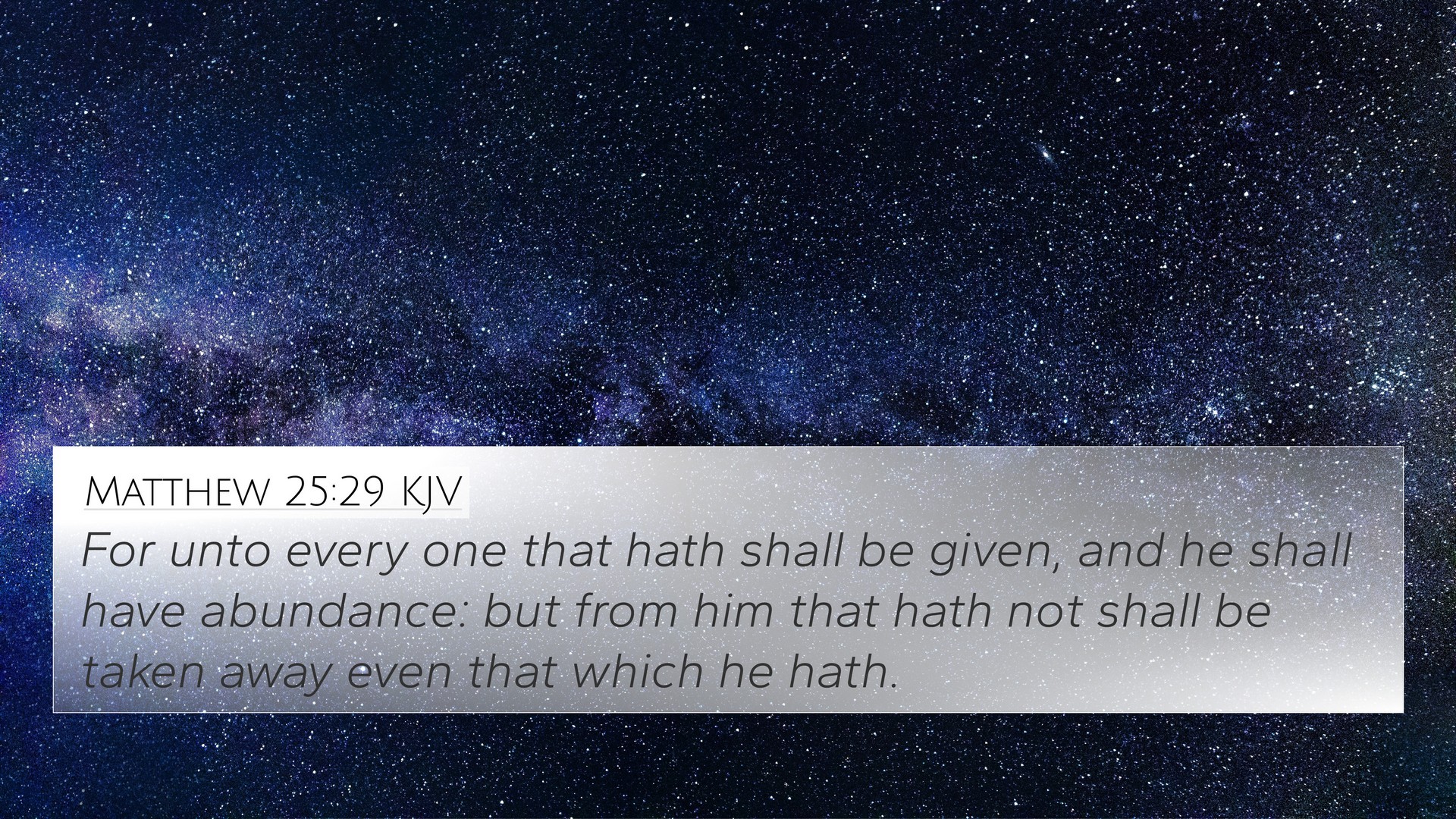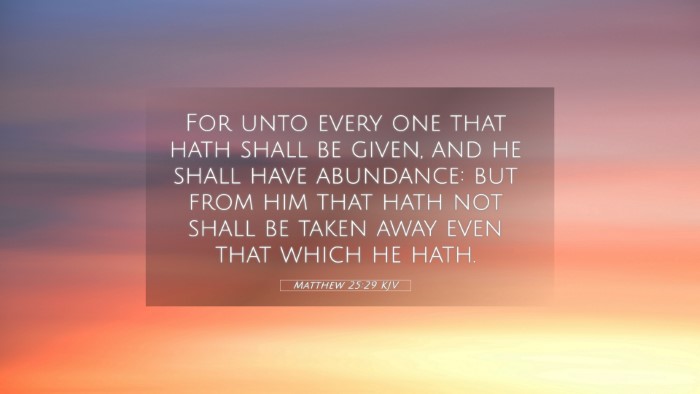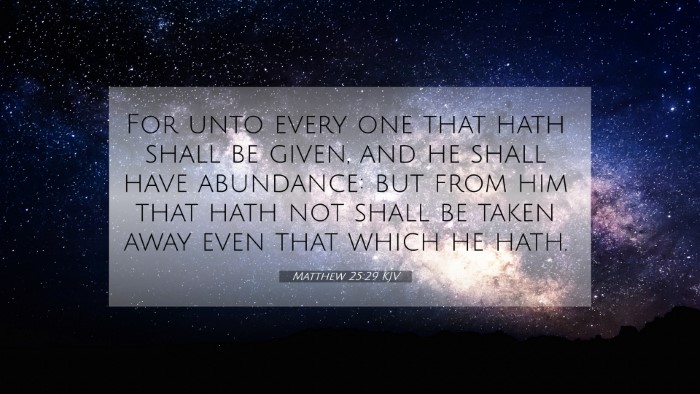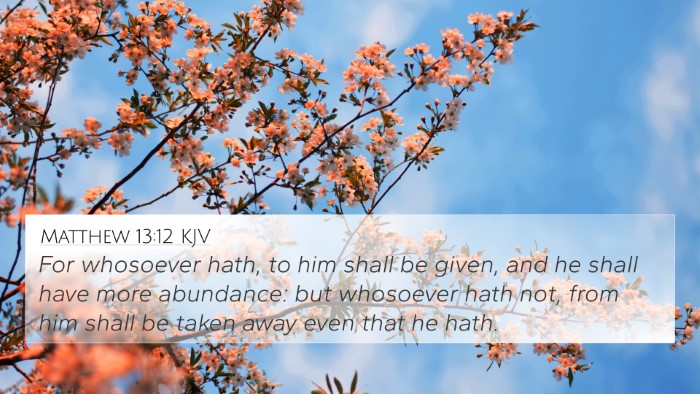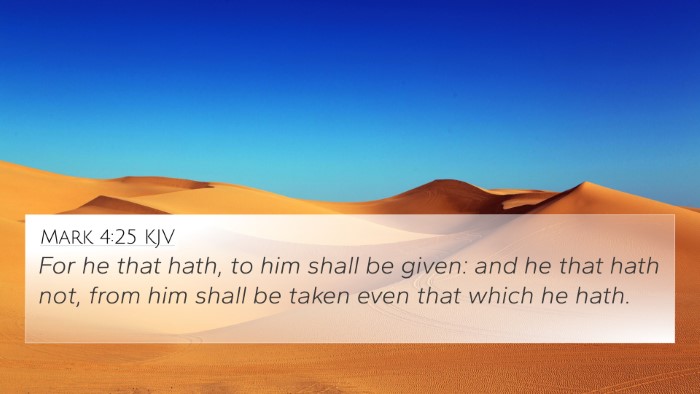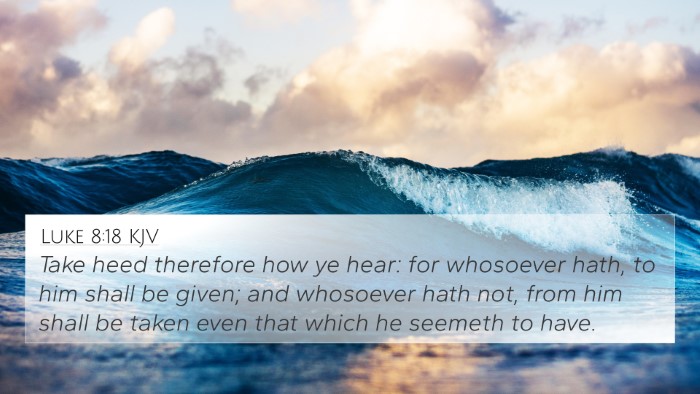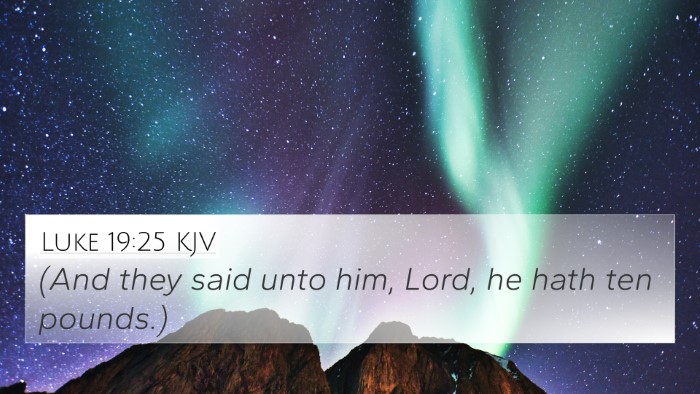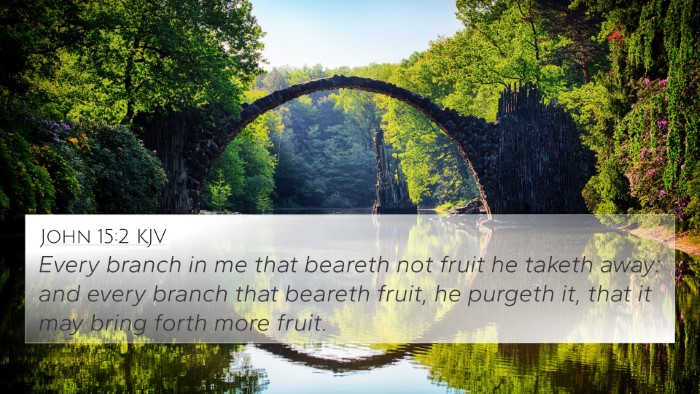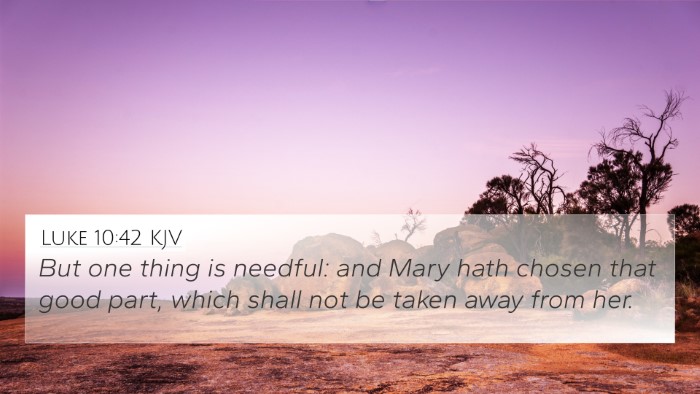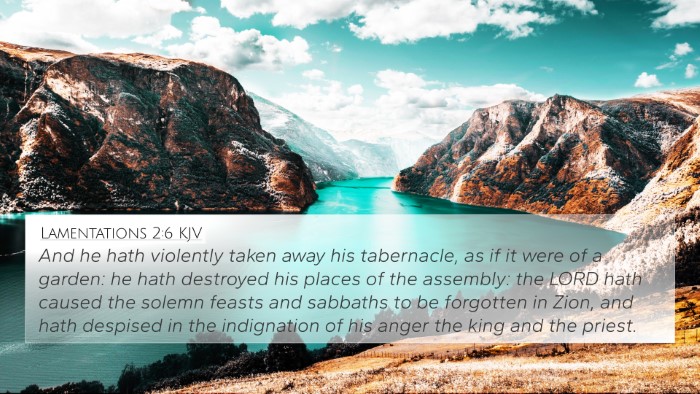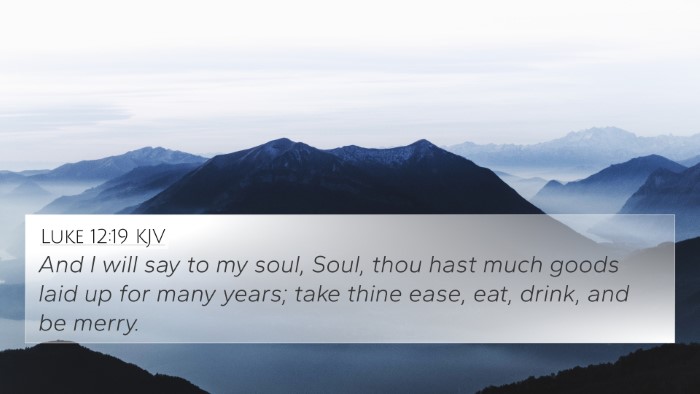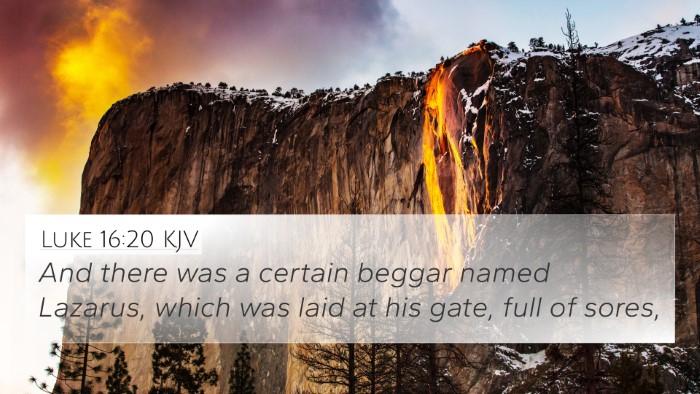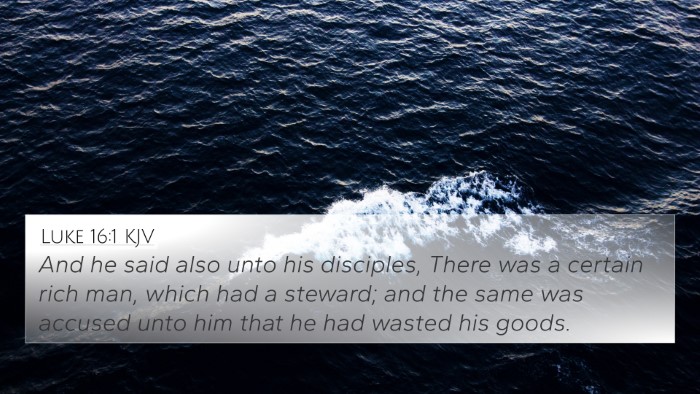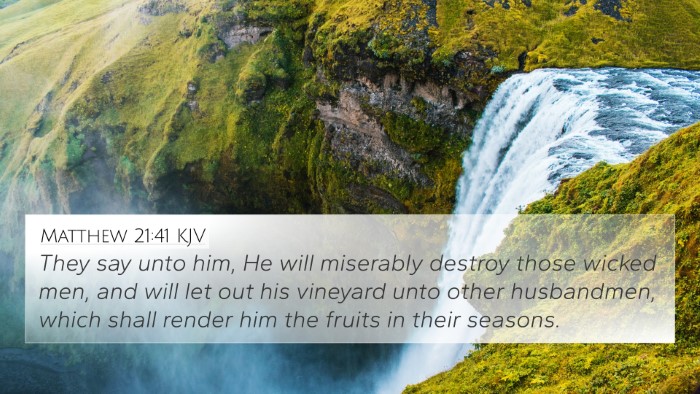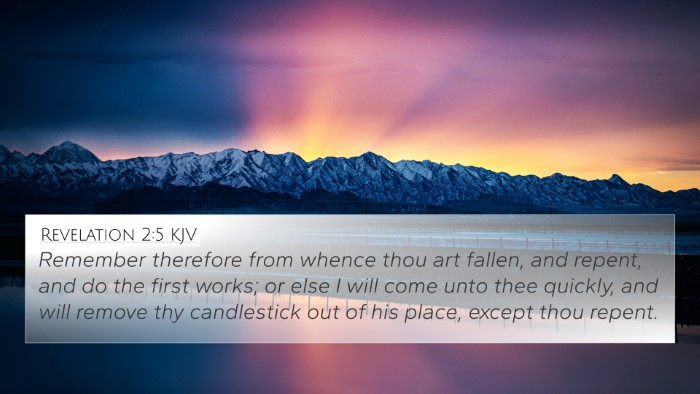Understanding Matthew 25:29
Verse: “For to everyone who has, more will be given, and he will have abundance; but from him who does not have, even what he has will be taken away.”
Interpretation Summary
This verse from Matthew encapsulates a profound principle of stewardship and divine reward. It emphasizes the idea that those who utilize their gifts, resources, and opportunities for good will be rewarded with even more. Conversely, those who neglect their blessings will lose even what little they possess.
Commentary Insights
Matthew Henry's Commentary
Stewardship and Responsibility: Henry explains that this verse illustrates the fundamental law of God's kingdom regarding the use of gifts. Those who are diligent and responsible with what they have will be entrusted with more. To squander gifts is to invite a loss.
Albert Barnes' Notes on the Bible
Spiritual Abundance: Barnes emphasizes that the “abundance” referred to is not merely material but spiritual. It suggests that those who actively engage in their faith and practice generosity will experience an increase in grace, knowledge, and blessings from God.
Adam Clarke's Commentary
Contrast of Generosity and Neglect: Clarke highlights the contrast between the generous and the negligent. He points out that the operative principle here is that of divine justice—what one does with their blessings determines future blessings.
Cross-References
This verse connects with various other Bible texts that reflect similar themes. Here are some notable cross-references:
- Luke 19:26: "For I say to you that to everyone who has will be given, and from him who does not have, even what he seems to have will be taken away." This verse parallels Matthew 25:29, reinforcing the message of rightful stewardship.
- Proverbs 28:20: "A faithful man will abound with blessings, but whoever hastens to be rich will not go unpunished." This highlights the reward for faithfulness.
- Galatians 6:7: "Do not be deceived: God is not mocked, for whatever one sows, that will he also reap." This emphasizes the principle of sowing and reaping in the context of spiritual abundance.
- 1 Peter 4:10: "As each has received a gift, use it to serve one another, as good stewards of God's varied grace." This verse calls believers to actively use their gifts for the benefit of others.
- Matthew 13:12: "For to the one who has, more will be given, and he will have an abundance, but from the one who has not, even what he has will be taken away." This reiterates the same idea within the context of parables.
- Luke 12:48: "But the one who did not know and did what deserved a beating will receive a light beating. Everyone to whom much was given, of him much will be required." This verse discusses the responsibility that comes with privilege.
- James 1:17: "Every good gift and every perfect gift is from above, coming down from the Father of lights." This emphasizes that all gifts originate from God, and we are to manage them wisely.
Thematic Connections
This verse forms part of a larger theological theme regarding the Kingdom of Heaven and the expectations of its citizens. The following thematic connections can be drawn:
- Divine Justice: The natural law that governs God's interaction with humanity is one of justice, where faithfulness results in greater responsibilities and rewards.
- The Principle of Increase: A recurring biblical theme is that spiritual growth occurs through diligence and faithful service.
- The Warning against Negligence: The severe consequences of neglecting one's gifts are highlighted throughout scriptural teachings, warning believers to remain vigilant and active.
Application and Reflection
The implications of Matthew 25:29 serve as a call to action for believers:
- Active Engagement: Believers are encouraged to actively engage with their spiritual gifts and resources.
- Faithful Stewardship: Understanding the weight of responsibility that comes with blessings promotes a mindset of gratitude and intentionality.
- Community Service: The call to serve others using one's gifts fosters communal well-being and personal fulfillment.
Conclusion
Matthew 25:29 invites profound self-reflection on how we value and utilize the gifts God has bestowed upon us. By understanding its meaning and implications through varied biblical commentary and cross-references, one can garner a deeper appreciation of the interconnectedness of the scriptures and the call to faithful living.
Tools for Further Study
For those wishing to explore Bible verses that relate to Matthew 25:29, various tools and resources are available:
- Bible Concordance: Use a concordance to find other verses with similar themes or key terms.
- Cross-Reference Bible Guide: These guides help identify relationships between various passages.
- Bible Reference Resources: Consult biblical commentaries and reference works for detailed analysis.
- Cross-Referencing Bible Study Methods: Employ methods like thematic studies to draw connections between verses.
